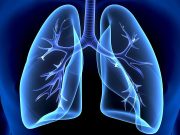Tag: Occupational Health
Stimulant Involvement in Opioid OD Death Higher for Those in Physically Demanding Jobs
Highest percentage of cocaine co-involvement seen in industries that are less physically strenuous
Mutational Signatures Tied to Haloalkane Exposure Are Enriched in Firefighters
Researchers say identifying occupational correlates with variants associated with exposure to haloalkanes may help pinpoint avoidable occupational hazards
One in Five Idiopathic Pulmonary Fibrosis Deaths May Be Due to Occupational Exposures
Authors call for continued research and surveillance to further characterize occupational risk factors
Melatonin Improves DNA Damage Repair Capacity in Night Shift Workers
Melatonin intervention linked to borderline significant increase in urinary 8-OH-dG, which is indicator of oxidative DNA damage repair capacity
Concentrations of Selected PFAS Up in Firefighters After 2023 Maui Wildfires
Firefighters had higher serum concentrations of some PFAS than employees from other occupations, but mainly below threshold for screening
Occupational Exposures Tied to Higher Risk for Vertigo
Risk increased with exposure to noise and vibrations
Smoking Tied to Lower Earnings, Labor Market Participation
Associations even stronger among those with lower educational attainment
Lean Quality Improvement Helps Surgical Residency Programs
Benefits seen for work hours, without negatively impacting preparedness
2000 to 2024 Saw Rise in Physician Union Petitions
Most organizing efforts motivated by nonfinancial factors
Usual/Permanent Night Shifts, Poor Sleep Quality Linked to Epilepsy
Higher risk for epilepsy also seen for sleep duration less than seven or more than eight hours per day, frequent insomnia, and daytime sleepiness














